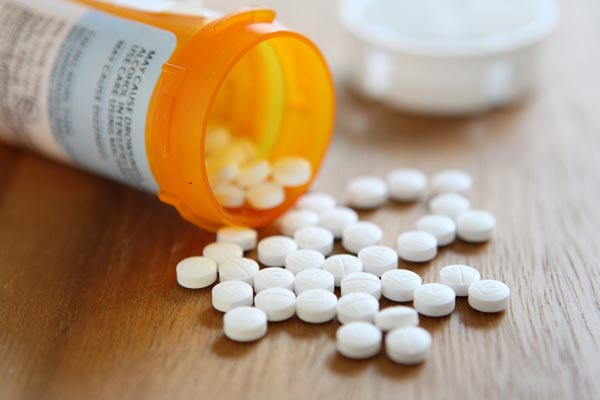If you or someone you love develops an addiction to drugs or alcohol, it’s important to understand how addiction changes the mind and behavior. Addiction will negatively impact just about every aspect of life. For this reason, it’s important to learn more about addiction and seek recovery sooner than later.
In this article, we’re taking a closer look at the mind of an addict and how to recover.
The Mind of an Addict
There’s no secret to the fact that drug use can drastically alter how the brain functions, right down to causing potential long-term brain damage. However, how drugs affect our brain differs from person to person and drug to drug. Addiction is characterized by a series of behavioral changes that are not quite so varied – these are the psychological symptoms of long-term drug use that show up when someone develops a dependence.
To understand why drug addicts think differently – and just how differently – it is important to understand addiction and discover why drug use changes the human brain.
Here’s what you need to know about the mind of an addict and how to get help.
How Addiction Develops
It has often been said that addiction is a disease, but not everybody understands it. No, addiction is not necessarily something you can “catch” from others in a contagion sense. However, the addictive properties of drugs cause a behavioral loop that leads to long-term brain damage and effectively changes how you perceive certain feelings of pain and pleasure. These changes can take years to revert and potentially contribute to relapse during recovery.
The brain has a natural reward system that helps us prioritize certain things in life, such as eating and seeking out a mate. However, this natural reward system is far from perfect, and it isn’t very good at adapting to change over just a few thousand years: for example, while our brain’s system is meant to ensure our survival by seeking out high-calorie foods, in today’s world, these high-calorie foods are more likely to lead to our death. We must fight against our brain’s natural inclination towards fat and sugar to eat a balanced diet.
When we seek out the things that make us happy – creative stimulation, tasty food, and even exercise – the body releases a neurotransmitter that tells us how to feel. This neurotransmitter enters a receptor built just for it, utilizing a precise structure (like a lock and key system). Addictive drugs work by having a near-identical chemical structure to these neurotransmitters, thus hijacking the system.
Drugs like cocaine, methamphetamine, heroin, alcohol, and nicotine all take advantage of this natural reward system and flood it with excessive amounts of chemicals that appear structurally similar to our neurotransmitters.
So instead of the body’s natural release of dopamine and serotonin, drug use can lead to an unnaturally powerful high. The first few times, this will not necessarily cause an addiction. It can significantly alter the way you think for a while, but the myth that any drug guarantees an addiction on the first hit is simply that: a myth.
A drug’s effectiveness will be higher than ever the first few times. But when drug use is repeated, the brain begins to develop a tolerance for the drug. The brain’s reward circuits are effectively desensitized. Because of an excessive level of dopamine from drug use, the brain effectively minimizes its dopamine production, and it begins to crave drugs not just as a way to get high but as a way to feel anything. This is when a drug’s effects on the brain drastically affect a person’s behavior, thinking, and mood.
How Drugs Change the Way We Think
Prolonged drug use and addiction can change us in several ways. The first and most apparent is the addiction itself. Drugs take advantage of how the brain rewards us for normal, healthy behavior, and it destroys this system to the point where we develop both a physical dependence on drugs (tolerance and withdrawal) and an emotional attachment to them (needing drugs to stave off feelings of depression, and guilt).
Beyond the addiction itself, long-term drug use will lead to diminished cognitive ability, memory loss, an increased risk for brain-related diseases such as dementia and stroke, and mental illnesses including anxiety, paranoia, and depression.
Because our natural reward system is tied to conditioning and learning (much like Pavlov’s dog), drug use also hijacks our motivations. At first, drug use may prime the brain for more drug use and long-term dependence, but it is not until full physical dependence, and emotional dependence is active that our motivations are entirely drug-related.
Someone with emotional and physical dependence on a substance will constantly think about how they can guarantee themselves the next high. Due to diminished brain capability, this often leads to risky, short-term decision-making. People with no criminal inclination may turn to crime to finance their drug habit, not out of ill will but out of a psychological necessity for that next high.
Addiction and Willpower
This all goes to say that behavior, willpower, and mental fortitude do not play a role in the development of an addiction. The physical dependence on drugs is purely neurological development, determined by genetic and environmental factors rather than psychological vulnerability. Other factors related to addiction only insofar that they increase a person’s likelihood of taking drugs, to begin with, due to extraneous circumstances.
For example, chronic pain patients are far more likely to develop an addiction to morphine or other opioids than someone who does not have such steady access to them. Someone living under harsher conditions is more likely to turn to drugs to provide emotional relief from extreme stress and depression. And someone with a genetic inclination towards alcoholism may develop an addiction to booze far faster than their peers.
The choice does matter, to a degree. Before an addiction develops, someone using drugs has the choice to stop after a single hit. However, that does not mean it is an easy choice. A single hit of cocaine can prime the brain for further usage, and since a drug addiction often develops when we are most emotionally vulnerable, many people make the wrong choices early on.
Once the dependence begins, the choice becomes entirely irrelevant. Stopping is not a matter of choosing to stop – instead, addiction treatment becomes necessary.
Does Addiction Treatment Work?
Yes, it does, but you must redefine what it means for a treatment to “work.” Drug addiction is not a single acute condition but a chronic, learned behavior. Breaking that behavior is not just a matter of undergoing rehab. Addiction treatment needs to consider the probability of relapsing, the chronic nature of addiction, and the fact that it can take years for symptoms of dependence to fade to such a point that they are manageable alone.
Addiction is still misunderstood, and there are cases of people beating an addiction entirely on their own. For them, the conditions may have been just right to stop and stop long enough to nullify the effects the drugs have had on their brains. Others relapse and “fail” for years and lose hope because they think they are incapable of healing. But the truth is that every case of addiction can be treated – it is always a matter of time.





